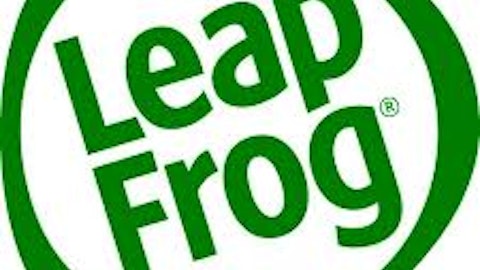On a day where much of the chatter is focused around the negative ad campaign being championed by Microsoft Corporation (NASDAQ:MSFT) against Google Inc (NASDAQ:GOOG), the search giant is trading at new all-time highs. In what I believe has become emblematic behavior for Google shares, there has been little flash or show, just a solid march higher that is in keeping with how the company itself operates. The attack by Microsoft, while factually based, has been referred to as fear mongering. It certainly does, however, raise some questions about some of Google Inc (NASDAQ:GOOG)’s business practices. It is too early to really know how the news will impact the company, but the stock seems unabashed on its quest for $800.
The trading session
Hovering just below the $800, Google Inc (NASDAQ:GOOG) shares are already in record-high territory during Friday’s session. Since the company released earnings, the stock has been edging higher. In addition to turning in solid results, Google recently announced changes to the way it runs certain search campaigns. As a result of the changes, a larger emphasis will be placed on the smartphone and tablet segments, showing how Google is forcing the mobile question to some extent. Under the new structure of the company’s AdWords Enhanced Campaigns, a proprietary algorithm will direct how ads are sent out into the world.
While the announcement led to grumbling by various advertisers, the market has approved the move by taking the stock higher. One of the biggest concerns for Google has been falling cost-per-click statistics and the need to monetize the “mobile gap.” The move addresses both of these issues and has been well received. A common element of the few complaints was the lack of any suggestion that those advertisers would leave Google Inc (NASDAQ:GOOG) — just that the service would now cost more.
Rumblings in the distance
Microsoft recently released a highly negative ad campaign targeted against Google that is branded “Scroogled.” The core of the message is that by reading users emails, the company is both violating your privacy and making a free profit along the way. From a functional perspective, the substance of the ads are accurate — Google uses software to scan emails for various keywords that then allow its system to push ads that are more targeted toward your apparent interests.
One of the issues being taken with the ads is that much of the language used is intentionally vague or ambiguous, allowing for the interpretation that Google Inc (NASDAQ:GOOG) employees are sitting around reading emails and taking notes. In a recent piece, Dan Mitchell points out that the use of words like “go through” and “they” is central the mental image that is evoked by the ads. The reality that highly impersonal software is the actual perpetrator of the privacy violations is downplayed.
The added twist to the story is that Microsoft’s ads direct individuals to a petition website called Care2. The site is run by an advocacy group that is dedicated to improving the world. In this specific case, consumers are directed to a petition titled “Tell Google to stop going through your email to sell ads.” Since the push by Microsoft to get signatures for the petition, the company has considered changing its policies to make it harder for corporation to use the site for commercial ends. While there is an argument that Microsoft’s action can be classified as consumer advocacy, this over simplifies the issue and is intentionally naive.
Stafan Weitz, Director of Online Services at Microsoft, advocates the use of Microsoft’s Outlook, which he says provides a great email experience without “that invasion of privacy.” Google’s general position has always been that the functionality enhances the user experience and that because no human eyes ever read your email, private information is never exposed. The Microsoft response is that the fact that concerned users have no mechanism by which to opt out is some measure of proof that Google Inc (NASDAQ:GOOG) is putting its bottom line ahead of the needs and wants of its customers.






